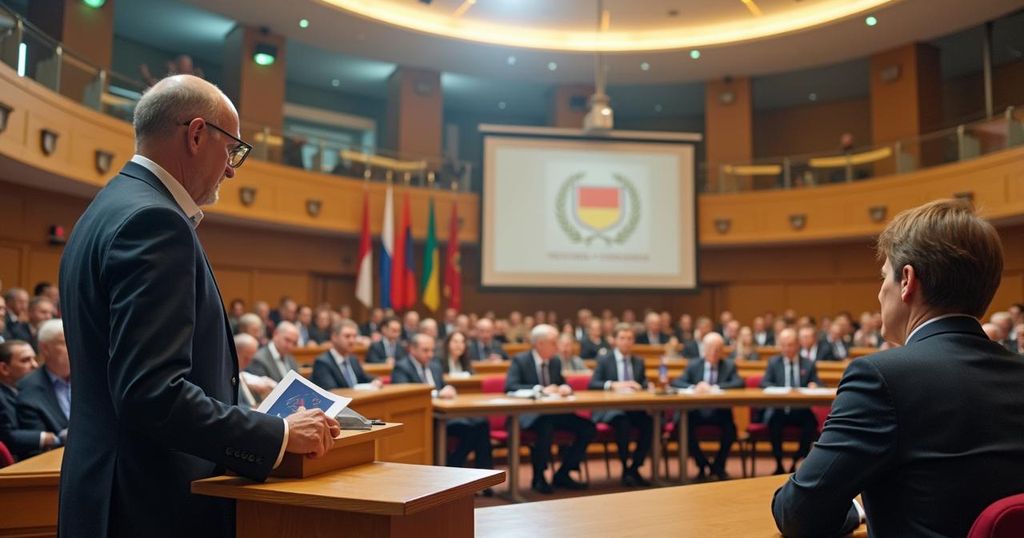Lithuania Votes in Parliamentary Elections: A Call for Change Amidst Economic Success
Lithuania held its first round of parliamentary elections amid public discontent, despite strong economic indicators. Prime Minister Ingrida Šimonytė’s government faces criticism over COVID-19 responses and migrant handling, leading to a potential shift toward opposing Social Democrats. Coalition-building will be essential as no party is likely to achieve a majority, reflecting a desire for change among the electorate.
On Sunday, Lithuanians cast their votes in the first round of parliamentary elections, a pivotal event that may see the center-right ruling coalition succeed by the opposition Social Democrats alongside smaller center-left parties. While Lithuania has achieved notable economic growth, characterized by annual double-digit increases in personal income and one of the lowest inflation rates in the EU, a palpable sense of discontent among voters persists. Critics of Prime Minister Ingrida Šimonytė, who has held office since 2020, highlight discontent arising from stringent COVID-19 restrictions and an influx of migrants from Belarus. Many citizens feel that the government’s response has been insufficient, particularly in supporting businesses through lockdowns and providing adequate healthcare access during the pandemic. The current political landscape suggested a strong showing for the Social Democratic Party, led by Vilija Blinkevičiūtė, with projections indicating they could secure double the votes of Šimonytė’s Homeland Union. However, it is expected that no party will surpass 20% of the vote, necessitating coalition-building for effective governance. Complicating the prospects for a stable government, the Social Democrats have already ruled out partnering with the newly established right-wing party led by former politician Remigijus Žemaitaitis, who has faced criticism for antisemitic remarks. Amidst these tensions, voters express their desire for change, even those who traditionally supported the conservative coalition. An example is Darius Mikalauskas, a lifelong conservative voter, who remarked on the need for new leadership, stating that the Homeland Union appeared “battered” and should reflect on their governance. Political analysts suggest that despite potential shifts to the left, Lithuania’s foreign policy, particularly concerning Russia, may remain consistent as it largely hinges on presidential direction, with President Gitanas Nauseda holding significant sway after recently securing re-election. The parliamentary elections allow approximately 2.4 million citizens to elect 141 members of the Seimas for a four-year term, with the first round determining many representatives from party lists and single-mandate constituencies, followed by a runoff on October 27 for contested positions.
The parliamentary elections in Lithuania take place against the backdrop of a mixed economic performance that, while generally positive, is overshadowed by pressing social issues and discontent among the populace. Lithuania’s economic indicators have been robust, reflected in significant personal income growth and low inflation rates compared to other EU nations. Nevertheless, the response to the COVID-19 pandemic and the handling of a migrant crisis have led to criticisms of the current government, raising questions about its efficacy and approach to governance. This election presents an opportunity for voters to express dissatisfaction and seek change, potentially leading to a shift in the political landscape of the country.
In conclusion, Lithuania’s recent parliamentary elections signal a demand for change among voters, despite a backdrop of economic stability. The issues surrounding pandemic responses and migration have sparked significant criticisms of the ruling coalition, fostering an environment ripe for potential opposition gains. With projections indicating a fractured vote requiring coalition negotiations, the future government will need to address both economic successes and social concerns to restore public confidence.
Original Source: www.pbs.org




Post Comment